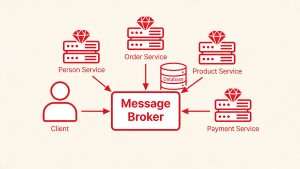Global Capability Centres (GCCs), or Global In-House Centres (GICs), function as strategic units for multinational companies, centralizing essential functions such as information technology, human resources, finance, procurement, analytics, and research and development. The primary purpose is to streamline processes, reduce costs, enhance innovation, and access talent globally. However, good-looking, live GCC job openings always come with waves of challenges for job seekers. Some of these include job complexities, mismatched skills, cultural diversity, adaptation to remote and hybrid work cultures, and constant technological advances.
Brief Overview of GCCs in India
India has shaped itself into a global GCC hub in recent years, with approximately 1,500 centers across nearly all industries, such as IT services, financial services, automotive, pharmaceuticals, retail, and healthcare. Bengaluru, Hyderabad, Pune, Chennai, and Gurgaon have gained preference due to the availability of skilled talent and cost-effectiveness, advantageous government policies, solid infrastructure, and vibrant start-up ecosystems. Currently, more than one million people in India work under GCCs, mainly to become contributors to global innovations, digital transformations, and operational efficiencies of multinational enterprises.
Common Challenges Faced by Job Seekers
There are many growth opportunities; however, job seekers struggle to get into GCCs. Because of these, job seekers have to search and scan for the most appropriate roles, i.e., jobs that suit their skills and experience. Further, they have to develop the technical and soft skills gap. Then, they have to wait until the recruitment process is completed. Another complication is cultural diversity, which complicates integrating into the new work culture. The ongoing development of skills to keep pace with the job market’s transformation may lead to longer job-seeking journeys, increased competition, and difficulty encumbering a favorable career path.
Talent Acquisition and Skill Gap Challenges
A fundamental problem for job seekers today is the worsening gulf between their skills and those preferred by GCC employers. Jobs in GCCs often require specialized technical knowledge, industry-specific experience, and high levels of soft skills such as communication, leadership, teamwork, and adaptability. Most of these candidates do not have access to specialized technology or exposure to global working environments, so they fail to find jobs at these hotly competitive destinations.
Niche Skills Shortage in Emerging Technologies
GCCs are increasingly focusing on hiring professionals who have skills in advanced and niche technologies such as artificial intelligence (AI), machine learning (ML), cloud computing, cybersecurity, blockchain, data analytics, robotic process automation (RPA), and IoT (Internet of Things). The small number of professionals with adequate proficiency in these emerging areas results in extremely high competition amongst the organizations for the few available talents, thus making the job market even more challenging for a less specialized individual. Explore job opportunities in GCCs.
Strategies for Upskilling and Reskilling
Job seekers must adopt aggressive upskilling and reskilling to address skills-related challenges. Engaging in online education platforms, such as Coursera, Udemy, LinkedIn Learning, and edX, and offering some internationally approved certification programs such as Google, AWS, Microsoft, Oracle, and Cisco can help take their technical skills to new levels. Further, practical experience from internships, boot camps, workshops, hackathons, and industry-focused projects helps improve the completeness of preparation for meeting industry employment expectations.
Cultural and Organizational Fit Challenges
The dynamics of global GCC operations can often make adapting candidates to culturally diverse and complex organizational environments difficult. A lack of fitness with the organizational culture and value systems may lead to employee dissatisfaction, mediocre performance, and limited avenues for career growth. Cultural intelligence, adaptability, and sensitivity to diverse working styles are critical for effective integration and career advancement in GCCs.
Balancing Global and Local Work Cultures
One peculiar challenge of a GCC is balancing global organizational practices with local cultural peculiarities. Employees must smoothly mesh global best practices with local operational realities. Employers would greatly appreciate signs of cross-culture competency, global business etiquette, and the ability to manage international teams from their candidates.
Building a Strong Employer Brand
GCC employers invest a lot in developing a strong employee value proposition for recruiting top talent. Job seekers need to evaluate potential employers on the strength of their employee value propositions, clarity of organizational values, opportunities for career advancement, employee engagement initiatives, and workplace culture. Being part of an organization with a strong employer brand greatly enhances career satisfaction, stability, and professional growth in the long term.
Retention and Remote Work Challenges
Retaining employees remains a significant problem in GCCs, with stiff competition, limited internal mobility, and fluctuating workforce expectations being some of the aggravating factors. In an environment where hybrid and remote working models are now widely adopted, employee engagement and retention pose even more significant challenges. For candidates to thrive in such changing work setups, they must demonstrate a strong skill set in remote work, from communication and digital collaboration to time management and self-directed productivity.
Managing High Attrition Rates
High attrition rates in GCCs stem from factors such as limited opportunities for growth, ambiguity about career possibilities, management problems, and rigidity at the workplace. Job seekers should choose their prospective employers based on those that value properly organized employee development, transparency in communication, leadership effectiveness, and working flexibility. Having an insight into employer retention strategies and policies will significantly affect an employee’s job satisfaction and career advancement in the long run.
Effective Remote Work Management Techniques
In a situation where hybrid and remote work have gained much traction, job applicants are expected to imbibe good remote work management skills. Knowledge and competence in using different digital collaboration platforms would include facilities such as Microsoft Teams, Zoom, or Slack and project management systems such as Jira, Asana, Trello, and others in cloud-based productivity. The evidence of a thriving remote work environment is an added advantage to the applicant’s chance of employment. It reassures the employer about the candidate’s contribution in a virtually dispersed team setting.
Overcoming Challenges and Future Opportunities
Job seekers will have to overcome the challenges facing GCCs. Such efforts must be strategic, focusing on continuous learning, cultural adaptability, and technology skills. People willing to face the obstacles have ample growth within the GCC, presenting themselves as viable candidates in the highly competitive world.
Leveraging AI and Innovation for Growth
AI-powered innovations and technologies are shifting job roles and hiring processes in the GCCs. Workers who understand AI, automation tools, and innovative problem-solving methodologies are sought after. Participation in innovation-led projects, industrial forums, and technical training schemes will enhance one’s career prospects.
Adapting to Changing Job Roles and Technologies
A growing number of role changes and advancements will be expected from job seekers in the wake of changing technologies. Those prepared to accept lifelong learning, refresh their skills periodically, adopt relevant new technology, and demonstrate a flexible approach will attain sustainable employability and career growth.
Conclusion
The challenges surrounding the employment scenario in the GCC are characterized by ongoing learning, cultural adaptability, practical remote management work, proactive skills development, and a culture of innovation. Strategically coping with these adversities and challenges helps candidates effectively brand themselves into prolific careers and sustained advancement in GCCs.



